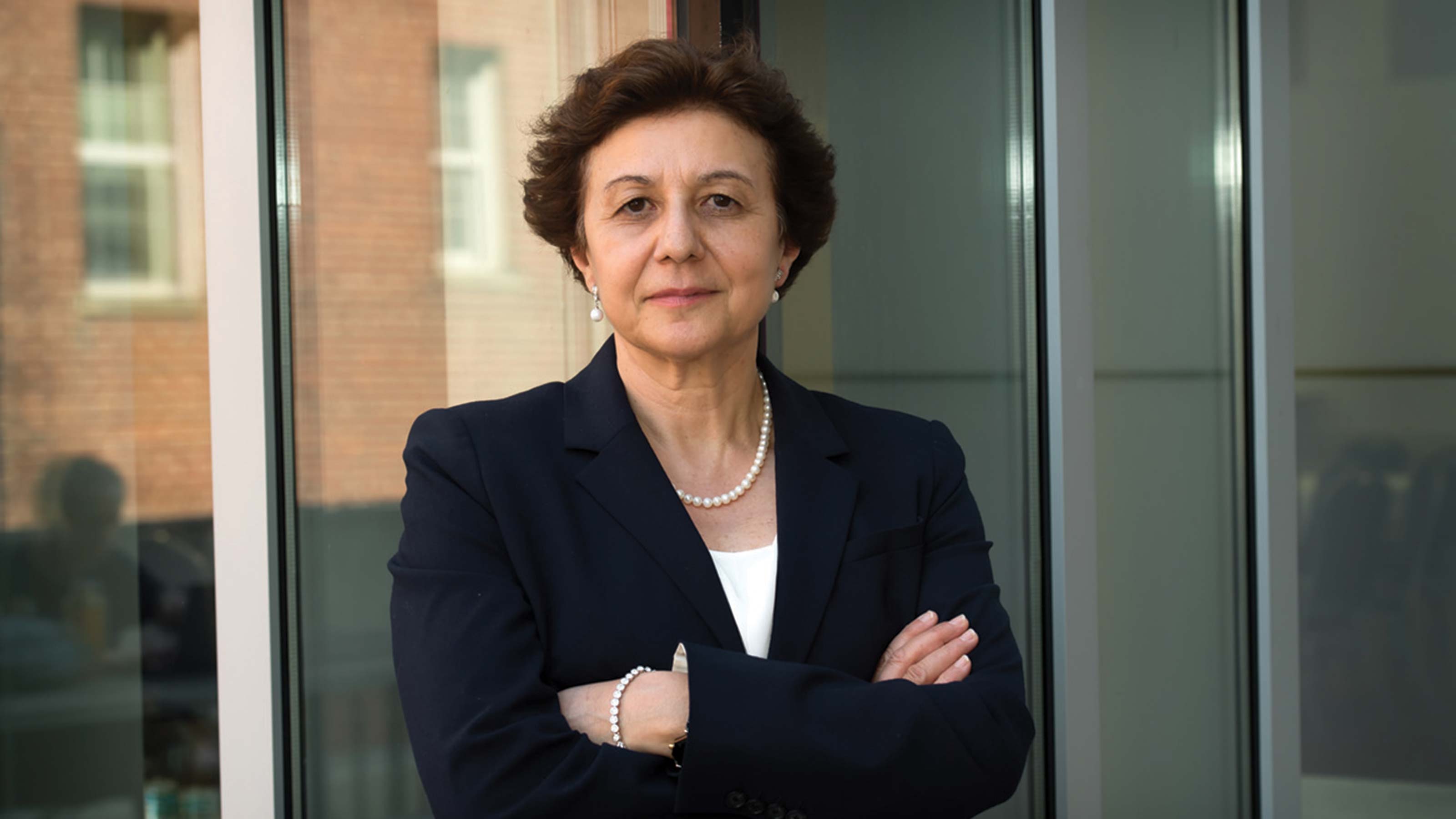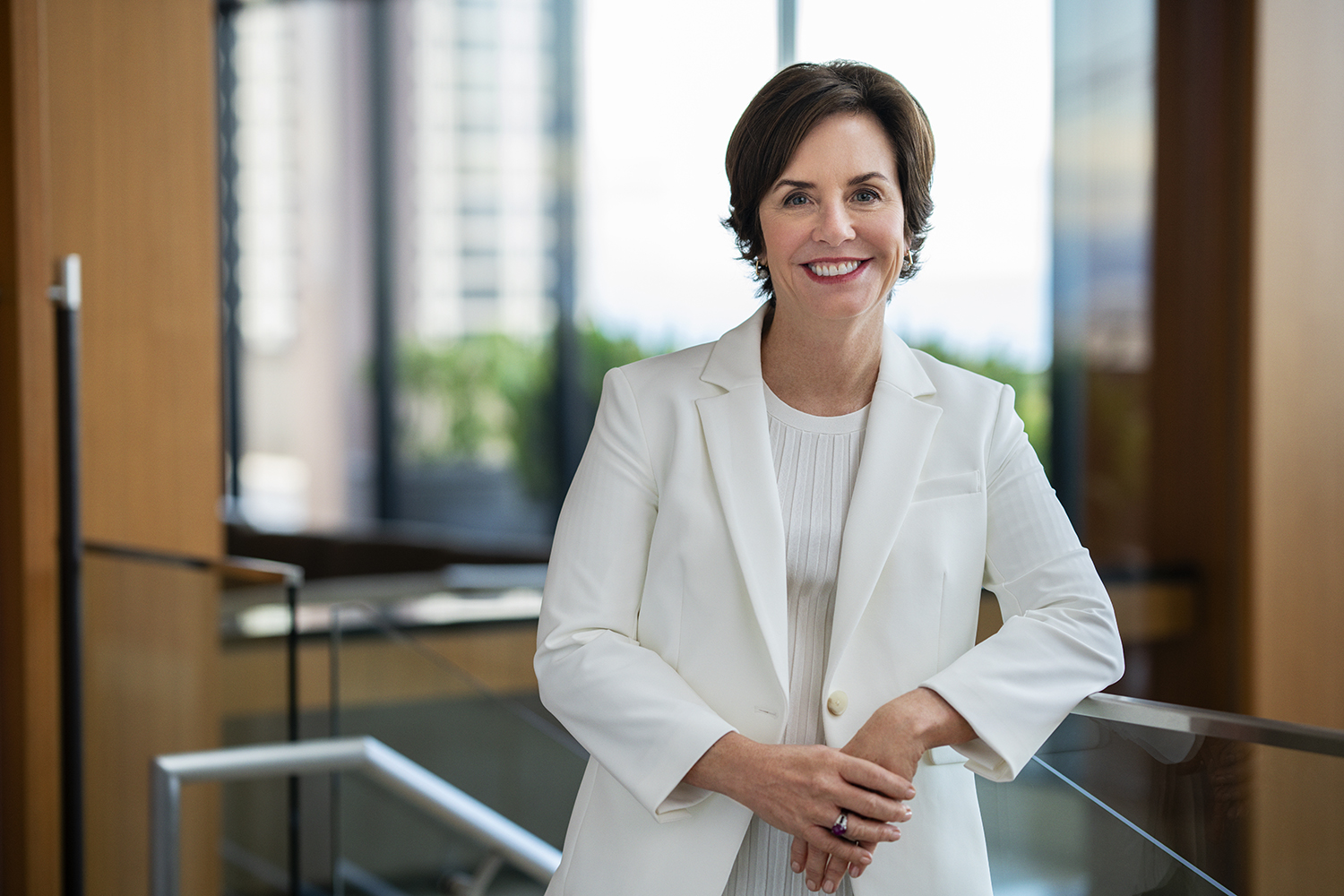A Salute to Money Smart Moms
Today's mothers are in a perfect position to share their experiences in the workforce and as investors.


Profit and prosper with the best of Kiplinger's advice on investing, taxes, retirement, personal finance and much more. Delivered daily. Enter your email in the box and click Sign Me Up.
You are now subscribed
Your newsletter sign-up was successful
Want to add more newsletters?

Delivered daily
Kiplinger Today
Profit and prosper with the best of Kiplinger's advice on investing, taxes, retirement, personal finance and much more delivered daily. Smart money moves start here.

Sent five days a week
Kiplinger A Step Ahead
Get practical help to make better financial decisions in your everyday life, from spending to savings on top deals.

Delivered daily
Kiplinger Closing Bell
Get today's biggest financial and investing headlines delivered to your inbox every day the U.S. stock market is open.

Sent twice a week
Kiplinger Adviser Intel
Financial pros across the country share best practices and fresh tactics to preserve and grow your wealth.

Delivered weekly
Kiplinger Tax Tips
Trim your federal and state tax bills with practical tax-planning and tax-cutting strategies.

Sent twice a week
Kiplinger Retirement Tips
Your twice-a-week guide to planning and enjoying a financially secure and richly rewarding retirement

Sent bimonthly.
Kiplinger Adviser Angle
Insights for advisers, wealth managers and other financial professionals.

Sent twice a week
Kiplinger Investing Weekly
Your twice-a-week roundup of promising stocks, funds, companies and industries you should consider, ones you should avoid, and why.

Sent weekly for six weeks
Kiplinger Invest for Retirement
Your step-by-step six-part series on how to invest for retirement, from devising a successful strategy to exactly which investments to choose.
To celebrate Mother’s Day, I’d like to pay tribute to mothers everywhere who pass on smart financial habits and sound values to their children. In fact, it’s often moms who take the lead in teaching their kids about money. Dads are more likely than moms to say they feel uncomfortable about having money talks with their children, reports the 2020 Parents, Kids & Money Survey from T. Rowe Price.
Why are mothers more likely to talk about money with their kids? Possibly because they spend more time with their children running errands and piloting the carpool—convenient opportunities to talk about everyday finances in a low-key setting. Today’s mothers are also in a perfect position to share their own experiences in the workforce and as investors. It’s important for your kids—especially your daughters—to know about work you do outside the home, how you balance work and family life, and how you save and invest for future events, such as college and retirement (see How to Raise Money Savvy Girls). And kids are never too young to learn, as long as you teach them in an age-appropriate way.
My friend Mary has taken this to heart. An interior designer who prefers to work as an independent contractor rather than an employee, Mary started passing along her entrepreneurial spirit to her 13-year-old daughter, Ruby, when Ruby was only 8 years old and had set up a stand selling extra plants that had sprouted in her mother’s garden.
From just $107.88 $24.99 for Kiplinger Personal Finance
Become a smarter, better informed investor. Subscribe from just $107.88 $24.99, plus get up to 4 Special Issues

Sign up for Kiplinger’s Free Newsletters
Profit and prosper with the best of expert advice on investing, taxes, retirement, personal finance and more - straight to your e-mail.
Profit and prosper with the best of expert advice - straight to your e-mail.
Inspired by her early success, Ruby has been working at a local farmer’s market since she was old enough to understand and handle money. “She meets people, learns how to make eye contact and does math on her feet,” says Mary. With her money, Ruby is expected to buy the extra things she wants while Mary takes care of her needs. She also saves half of what she earns, and every six months she and her mother transfer her savings to a custodial brokerage account that’s invested in a mutual fund.
Mary invests in a couple of rental properties, and Ruby knows that tenants pay rent to live there. Mary hopes that when Ruby eventually taps her own savings, she uses it “to purchase an asset such as real estate rather than a liability like a car.”
A personal note. I have a special interest in teaching kids about money, because I’m the author of Raising Money Smart Kids. While I was working on the book, I used to bounce ideas off my own three children as they were growing up. They’re all married now, and I asked them what they learned as kids that has stuck with them as adults.
“One thing you taught us was that money should always be part of the conversation so that you’re never afraid to deal with it,” says my daughter, Claire. “This comes up with me when I do our taxes every year.” For son Peter, “giving money at church was a big thing that made an impression on me. I got used to the expectation that you contribute each week, even if it isn’t a lot, and I still do.”
It’s heartening to know that my kids are passing along the lessons they learned to their own children. “We were brought up knowing that money has value beyond buying ‘stuff,’ ” says Claire. “We knew it also paid for things like our education, vacations and everything else we did. Thirty years later, we can see that it pays for you to have a nice retirement. This is something I’m trying to make my kids realize and think about.”
When son John’s 5-year-old daughter, Sullivan, received a $50 check for her birthday, John’s wife, Sara, suggested that he take Sullivan to the bank to put $40 into her college fund and keep $10 cash to buy something special. Says John, “Sara asked me, ‘Wouldn’t your mother agree with this plan?’ ” Yes, I would!
Profit and prosper with the best of Kiplinger's advice on investing, taxes, retirement, personal finance and much more. Delivered daily. Enter your email in the box and click Sign Me Up.

Janet Bodnar is editor-at-large of Kiplinger's Personal Finance, a position she assumed after retiring as editor of the magazine after eight years at the helm. She is a nationally recognized expert on the subjects of women and money, children's and family finances, and financial literacy. She is the author of two books, Money Smart Women and Raising Money Smart Kids. As editor-at-large, she writes two popular columns for Kiplinger, "Money Smart Women" and "Living in Retirement." Bodnar is a graduate of St. Bonaventure University and is a member of its Board of Trustees. She received her master's degree from Columbia University, where she was also a Knight-Bagehot Fellow in Business and Economics Journalism.
-
 5 Vince Lombardi Quotes Retirees Should Live By
5 Vince Lombardi Quotes Retirees Should Live ByThe iconic football coach's philosophy can help retirees win at the game of life.
-
 The $200,000 Olympic 'Pension' is a Retirement Game-Changer for Team USA
The $200,000 Olympic 'Pension' is a Retirement Game-Changer for Team USAThe donation by financier Ross Stevens is meant to be a "retirement program" for Team USA Olympic and Paralympic athletes.
-
 10 Cheapest Places to Live in Colorado
10 Cheapest Places to Live in ColoradoProperty Tax Looking for a cozy cabin near the slopes? These Colorado counties combine reasonable house prices with the state's lowest property tax bills.
-
 My Four Pieces of Advice for Women Anxious About Handling Money
My Four Pieces of Advice for Women Anxious About Handling MoneyTalking about money can help you take control of your finances.
-
 Talking Money With Your Spouse
Talking Money With Your Spousepersonal finance These should be important conversations that will be helpful in the long run.
-
 Readers Share Tips for Raising Money Smart Kids
Readers Share Tips for Raising Money Smart KidsRaising Money-Smart Kids What's the right age for a child to have their own credit card? Opinions vary.
-
 How to Boost Your Financial Savvy
How to Boost Your Financial SavvyWomen & Money Women need to know how financial knowledge can help them take care of their families and themselves.
-
 What Kids Need to Know About Finances
What Kids Need to Know About FinancesWomen & Money In a digital world, it's even more critical to teach children how to handle cold, hard cash.
-
 Estate Planning Got You Down? Start With a Will
Estate Planning Got You Down? Start With a WillFinancial Planning Estate planning may feel overwhelming. Start with a will and the rest will fall into place.
-
 A Talk With Carrie Schwab-Pomerantz
A Talk With Carrie Schwab-PomerantzWomen & Money Investing is the key to building a nest egg that will last a long lifetime, says Schwab-Pomerantz.
-
 Financial Planning and Investing: Women Closing the Confidence Gap
Financial Planning and Investing: Women Closing the Confidence GapWomen & Money Since the start of the pandemic, women have become more involved in their financial futures.